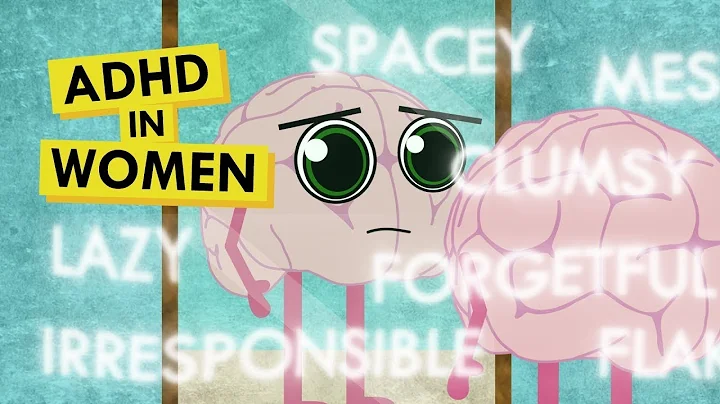Motive: It is the reason that explains why a certain behavior is initiated, continued or terminated at a specific time.
1. Physiological and psychological needs

Physiological needs: natural motivations, such as food, clothing, sex, etc.;
Psychological needs: social motivations, such as love, achievement, power, etc.
can be compared with Maslow's hierarchy of needs theory .
2. Two-factor theory
factor theory (two factor theory) is also called "motivation-health theory". American psychologist Herzberg proposed it in 1959. He divided the relevant factors in the enterprise into two types, namely satisfaction factors and dissatisfaction factors.

Satisfaction factors refer to factors that can satisfy and motivate people. Dissatisfaction factors refer to factors that easily generate opinions and negative behaviors, that is, hygiene factors. He believes that these two factors are the main factors affecting employee performance.
Health factor content includes company policies and management, supervision, wages, colleague relations and working conditions, etc. These factors are factors outside of work. If these factors are met, dissatisfaction can be eliminated and original work efficiency can be maintained, but it cannot motivate people to behave more positively.
Motivational factors are related to the work itself or the work content, including achievement, appreciation, the meaning and challenge of the work itself, sense of responsibility, promotion, development, etc. If these factors are satisfied, they can greatly motivate people. If they are not satisfied, they will not cause dissatisfaction like health factors.
What you need to pay attention to is . To pursue employee satisfaction , you need to identify the positive ones. Employees who are passive, lazy and unprogressive must be resolutely eliminated.
3. Maslow's Hierarchy of Needs Theory
Maslow (1968) believed that human needs are composed of five levels: physiological needs, safety needs, belonging and love needs, esteem needs, and self-actualization needs.

 . The five needs are the most basic and innate. They constitute different grades or levels and become the force that motivates and guides individual behavior.
. The five needs are the most basic and innate. They constitute different grades or levels and become the force that motivates and guides individual behavior.
 . The relationship between low-level needs and high-level needs: Maslow believes that the lower the level of needs, the greater the power and the greater the potential. As the level of needs rises, the power of the needs weakens accordingly. Lower-level needs must be satisfied before higher-level needs can arise.
. The relationship between low-level needs and high-level needs: Maslow believes that the lower the level of needs, the greater the power and the greater the potential. As the level of needs rises, the power of the needs weakens accordingly. Lower-level needs must be satisfied before higher-level needs can arise.
 . Low-level needs are directly related to the survival of the individual, also called missing needs. When this need is not met, life is directly endangered; high-level needs are not absolutely necessary to maintain individual survival, but meeting this need makes people healthy, live longer, and It is energetic, so it is called growth needs.
. Low-level needs are directly related to the survival of the individual, also called missing needs. When this need is not met, life is directly endangered; high-level needs are not absolutely necessary to maintain individual survival, but meeting this need makes people healthy, live longer, and It is energetic, so it is called growth needs.
High-level needs are more complex than low-level needs. To meet high-level needs, good external conditions must be met: social conditions, economic conditions, political conditions, etc.
4. Maslow saw the difference between low-level needs and high-level needs. To satisfy high-level needs, low-level needs must first be met.
But they are not absolutely opposite. Before people's higher-level needs arise, lower-level needs only need to be partially satisfied. Example: In order to realize the ideal, he will sacrifice his life without considering physiological needs and safety needs.
4. Achievement Motivation Theory
McClelland, a professor at Harvard University in the United States, summarizes people’s high-level needs as the needs for achievement, power and affinity.
Before McClelland, psychologists from the psychoanalytic school and the behaviorist school conducted research on motivation. The school of psychoanalysis represented by Freud uses dream interpretation, free association and other methods to study motives. They often attribute people's behavior to sexual and instinctive motives, and it is difficult to draw conclusions based on their research methods and techniques. Representative results, poor reproducibility, inability to draw strength of motivation.
Behaviorists use experimental methods to study motivation, so that the intensity of motivation can be measured. They mainly focus on basic survival needs such as hunger, thirst, and pain, and do not distinguish between human motivation and animal motivation.
McClelland believes that their research on motivation has certain limitations. He focuses on the study of people's high-level needs and social motivations, and emphasizes the use of systematic, objective, and effective methods for research.

McClelland believes that individuals have three important motivations or needs in work situations:
 . Achievement needs: the need to strive for success and to do the best.
. Achievement needs: the need to strive for success and to do the best.
 . The need for power: the need to influence or control others without being controlled by others.
. The need for power: the need to influence or control others without being controlled by others.
 . Affinity needs: The need to establish friendly and close interpersonal relationships.
. Affinity needs: The need to establish friendly and close interpersonal relationships.
However, if a person's achievement motivation is too strong, it may not necessarily be a good thing. For example, a person values money too much, has very high needs, and often has high expectations that are difficult to meet. He is prone to impetuousness and negative emotions, and may even have a negative impact on the organizational team, and his job stability will not be very strong.
5. Expectancy motivation theory
Expectation theory is also called "valence-means-expectation theory".
Exciting power = expected value × valence (M=E*V).
The motivation theory proposed by Victor H. Vroom, a famous North American psychologist and behavioral scientist, in "Work and Motivation" in 1964.

Exciting power refers to the intensity of mobilizing personal enthusiasm and stimulating people's internal potential;
Expectation value is the degree of certainty of achieving the goal based on personal experience;
Valence is the value of the achievable goal to meet personal needs.
To put it simply: the goal can be achieved through hard work, and rewards can be obtained when reaching the standards, and the rewards must be attractive.
What needs to be noted is that in , target expectations must be what employees expect, not what the company unilaterally determines. Otherwise, the intensity of motivation will still be greatly reduced.
6. Self-determination theory
Self-determination theory is a motivational process theory about human self-determination behavior proposed by American psychologists Deci Edward L. and Ryan Richard M. in the 1980s.
They proposed that human beings have three basic inner psychological needs: competency needs, autonomy needs and relationship needs, and believed that these needs are universal needs of human beings.

 . Competence needs
. Competence needs
Human beings are born with the need to control the environment, that is, human beings need to believe that they are competent, able to change the status quo, and able to achieve goals. When people cannot experience their own abilities and satisfaction during an activity, they are less willing to continue.
 . Need for autonomy
. Need for autonomy
Human beings hope to be the masters of life rather than slaves controlled by life. That is, people hope that their thoughts and behaviors are based on their own will rather than being controlled by the outside world. At the individual level, the need for autonomy often manifests itself in having the right to choose and believing in free will.
 . Relationship needs
. Relationship needs
Human beings are social animals, so they have strong relationship attributes. During the course of evolution, people who are able to establish and maintain good social relationships are better able to survive and inherit the gene . Therefore, the need for relationship is rooted in the basic psychological needs of human beings, which is reflected in the human pursuit of connection, cooperation and recognition between people.











![HAZTE RICO CON PAZ MENTAL💰😌🙏🏼 Audiolibro de Napoleón Hill - [1967] - DayDayNews](https://i.ytimg.com/vi/TBJGmf1BLQY/hq720.jpg?sqp=-oaymwEcCNAFEJQDSFXyq4qpAw4IARUAAIhCGAFwAcABBg==&rs=AOn4CLCNkh_rVRDHqi3j5sM8wzEnQPn60A)










